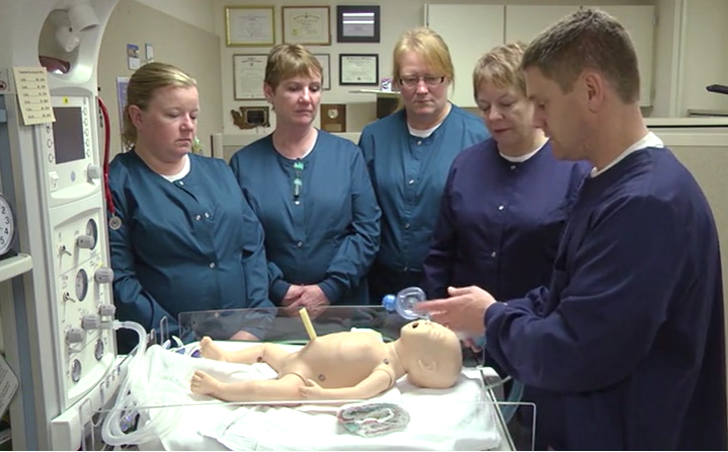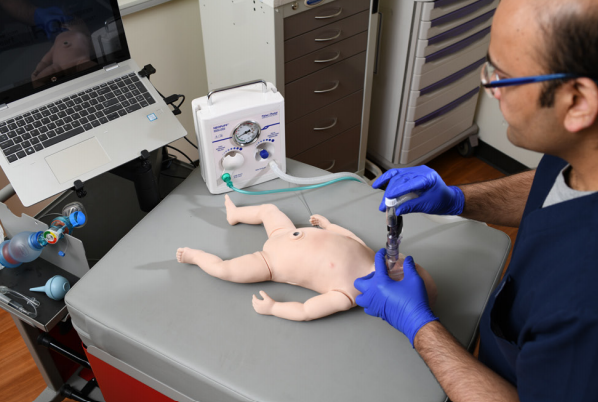How NRP Works
Two Learning Methodologies: Instructor-led Courses and RQI® for NRP®
The NRP 8th edition includes two learning methodologies: Instructor-led Provider Courses, and a new methodology for NRP learners called RQI for NRP.
Instructor-led NRP Provider Courses are familiar to experienced NRP learners as in-person group training sessions where learners may practice and review resuscitation skills, demonstrate knowledge of the NRP algorithm sequence, use correct hands-on techniques, and participate in the simulation and debriefing course component to improve teamwork and communication (Figure 1).
Figure 1. Instructor-led NRP course in progress.
RQI® (Resuscitation Quality Improvement) is currently used in numerous hospitals for resuscitation education including Basic Life Support (BLS), Advanced Life Support (ALS) and Pediatric Advanced Life Support (PALS). Due to findings that episodic learning can improve neonatal resuscitation outcomes, the American Academy of Pediatrics formed a collaboration with RQI Partners (a partnership between the AHA and Laerdal Medical) to develop RQI for NRP.
RQI for NRP is a self-directed learning program that uses low dose, high frequency quarterly learning and skills sessions to cover the content of NRP Essentials. RQI for NRP is not a requirement for NRP education. In hospitals that choose to use RQI for NRP, Advanced providers will maintain their Essentials provider status by completing short (10-15 minutes) quarterly skill-based practice sessions at a simulation station located in their hospital (Figure 2) and renew their Advanced provider status at an instructor-led course every two years.
Figure 2. An NRP learner practices positive-pressure ventilation at the RQI simulation station.

